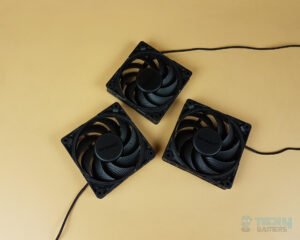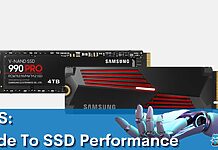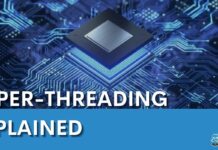Many people fail to heed the power consumption of their gaming PCs because they are unaware of how power-hungry they can be. The power consumption depends on the components in your PC. It can be increased further if the PC isn’t serviced as required.
Key Takeaways
- The power consumption of a gaming PC varies between the builds. A high-end PC will consume more power than a mid-range and low-end PC.
- A PC may consume more power if covered in dust, is overclocked, runs resource-intensive software/applications, or has a poor cooling system.
- You can reduce power consumption by cleaning the PC, upgrading components, underclocking, improving the cooling system, and using different power modes.
Average Energy Consumption Of A Gaming PC
Gaming PC energy consumption varies across types. High-end PCs typically use up to 750 Watts, mid-range around 460 Watts, and budget PCs approximately 300 Watts.
The difference between SSDs and HDDs also plays a role in power consumption. High-end PCs have a water cooling system that is more efficient than an air cooling system[1] and RGB lights that take up more power. Lastly, high-end PCs are equipped with powerful GPUs that take up electricity to run.
Power Consumption Of Individual PC Parts
Below, we have listed how much power your PC components consume individually. This will help you figure out where to work easily when trying to make your PC consume less power.
CPU
CPU, out of all the PC components, consumes the most power to run.[2] Of course, the power consumption still depends on the CPU model installed on your PC. If you have a low-end CPU, it can consume up to 35 Watts.
Meanwhile, a mid-end CPU can consume up to 125 Watts of energy. Lastly, if you have a high-end PC for gaming, video editing, or graphic design, its CPU may use up to 150 Watts of energy.[3]
GPU
GPUs are second to CPUs when it comes to consuming power. Again, the power consumption of the GPU entirely depends on its model. If you have a low-end GPU for a budget PC, it will most likely consume up to 120 Watts.
Moreover, if your PC’s GPU is mid-range, it can use up to 200 Watts. Whereas, if your GPU is high-end, it can use up to 450 Watts of energy,[3] and maybe extra fans are required to cool the system.[4] Again, these figures may vary according to your use of the GPU; they may go higher if you overburden your GPU by overclocking.
RAM
The power consumption of RAM entirely depends on its size. It may use as little as 1.5 Watts of power starting from the lowest amount of RAM. However, as you go higher up to 16 GB, your RAM may use up to 6 Watts of power. If you double it to 32 GB, the power consumption will double up to 12 Watts.[3]
Storage Drives
If you have a 2.5” HDD, it is likely to consume up to 3 Watts of energy. A 3.5” HDD can consume up to 12 Watts of energy. On the other hand, SSDs supposedly consume less power than HDDs and are preferred more over them.[5] An SSD can consume from 3.5 Watts to up to 8.5 Watts.[3]
Cooling Fans

The power consumption of PC fans depends on their dimensions and their RPM. The least amount of power that a PC fan may require to run can be as low as 0.6 Watts. However, as dimensions and RPM increase, the power requirement may increase to 6 Watts.[3]
Monitor
The power consumption of the monitor may vary between models again. If you have a budget monitor, it can consume as little as 25 Watts. However, going higher to a mid-range monitor may take up to 50 Watts of energy. Lastly, a high-end monitor may require up to 70 Watts of energy.[6]
Motherboard And PSU
These components are entirely different, but their power consumption depends entirely on the power requirement of other components. That’s because these two components supply power to the other components.
Despite that, the motherboard can typically take up to 150 Watts of energy. At the same time, a PSU can take up from 200 Watts to 1800 Watts.[7] Again, this power consumption figure entirely depends on the model of the PSU.
Peripherals
Last and least, peripherals are the ones you need to worry about the least when it comes to power consumption. They take as little as 0.5 Watts of energy to run.
Ways You Can Measure Your PC’s Power Consumption
The simplest way to measure your PC components’ power consumption is by looking it up online. All you have to do is open your web browser and write the model of your PC components along with power consumption. You will be displayed with the answer immediately.
Use a power meter for precise results on your PC’s power consumption. Plug it into an electrical socket, connect your PC’s cables to it, and get accurate readings. You can also try testing the power consumption of your PC when it’s running, sitting idle, overclocking, and using resource-intensive applications.
Another way, although less reliable, is to check your PC components’ TDP. The TDP tells the heat your PC components produce, presumed to be the power it consumes.[8]
It is true to some extent, but the TDP is also the maximum heat the component can radiate, which might not be the case every time it is used. Therefore, looking up the components’ power consumption online is advised.
Why Your PC Is Using More Power Than It Should?
According to our understanding, here’s a list of reasons your PC consumes more power.
- The PC Covered In Dust: Dust inside the PC leads to your components heating up too much. The overheating further leads your cooling components to work harder than they should. Therefore, cleaning your PC every 3 to 6 to prevent overheating is crucial.
- Resource-Intensive Software/Applications: Heavy-duty games, graphic designing, and video editing software push your components to their limits. Your components are forced to work at total capacity or close, which pushes them to draw more power.
- Overclocking: Despite the good, overclocking still has its disadvantages, with more power consumption being one of them.[9] When your components work more than they are supposed to do by default, they draw more power.
- Usage Of Outdated Components: Outdated PC components are often the culprits behind more power consumption. They might not be as power efficient as the components available now. Some people prefer using a CRT monitor over LCD and LED monitors. CRT monitors are why your PC is drawing more power than it should.[10]
- Poor Cooling System: High-end PCs generate more heat than budget/office PCs, potentially overwhelming standard fan cooling. This strains fans, leading to increased power consumption.
Ways You Can Reduce Your PC’s Power Consumption
Now that you’ve gone through the possible reasons behind your PC consuming more power than it should, here’s how to prevent it from doing so.
- Clean Your PC: The first and foremost step you should take before anything should be to clean your PC. Its motive should be reduced power consumption and its betterment and longevity. You can clean the PC parts individually using compressed air. If you do not have an air compressor, you can clean them without using it.[11] We also have individual guides on how to clean PC fans, tempered glass, and motherboards.
- Avoid Using Resource-Intensive Software/Application: Avoid using resource-intensive software on underpowered components to prevent excessive power consumption and component wear.
- Underclock Your PC: If you are overclocking any of the components of your PC, it is best to try underclocking them to prevent power consumption.
- Get Your PC A Better Cooling System: If you feel the fans in your computer case are not keeping things cool, it is better to install more fans. If you are ready to take things up a notch, it is even better to install a water-cooling system. A cooling system will do a better job than your PC fans.
- Upgrade Your PC Components: If you are still using outdated PC components that are not power efficient, it’s time to upgrade them. That way, you will notice an improvement in your PC’s performance and a reduction in the power your PC is consuming.
- Power Modes: If you often leave your PC idle with your unsaved data, it is better to use power modes so that your PC consumes less power.
- Adjust Your Brightness Levels: This is a tip that helps in saving power. While using your PC, setting your brightness level slightly lower than the highest level is better.
Similar Guides:
- Gaming PC Power Usage: How Much Is Required?
- How Long Do Gaming PC Lasts
- Get Computer Out Of Power-Saving Mode [Windows & Mac]
- How To Check Insufficient Power Supply
References:
-
Princeton University. Outdoor Action Guide To Hypothermia And Cold Weather Injuries. Retrieved from https://www.princeton.edu/~oa/safety/hypocold.shtml
-
The University of California. Reducing Processor Power Consumption by Improving Processor Time Management in a Single-User Operating System. Retrieved from https://www2.eecs.berkeley.edu/Pubs/TechRpts/1996/CSD-96-914.pdf
-
Computer Hope. How much power do computer components use? Retrieved from https://www.computerhope.com/issues/ch000314.htm
-
Bogleheads.org. gaming VS business computer. Retrieved from https://www.bogleheads.org/forum/viewtopic.php?t=84922
-
GeeksforGeeks. Difference between Hard Disk Drive (HDD) and Solid State Drive (SSD). Retrieved from https://www.geeksforgeeks.org/difference-between-hard-disk-drive-hdd-and-solid-state-drive-ssd/
-
Energy Sage. How many watts does a computer use? Retrieved from https://www.energysage.com/electricity/house-watts/how-many-watts-does-a-computer-use/
-
Chron. How Many Watts for a Power Supply Is Enough? Retrieved from https://smallbusiness.chron.com/many-watts-power-supply-enough-71452.html
-
Department of Electrical and Computer Engineering, Auburn University. Technology Characterization Model and Scaling for Energy Management. Retrieved from https://www.eng.auburn.edu/~vagrawal/TALKS/VDAT19/Goyal_Agrawal_VDAT_2019.pdf
-
University of Massachusetts Amherst, Techbytes. (2017, February 08). CPU Overclocking: Benefits, Requirements, and Risks. Retrieved from https://websites.umass.edu/Techbytes/2017/02/08/cpu-overclocking-benefits-requirements-and-risks/
-
Western Michigan University. CRT Versus LCD Monitors for Soft Proofing: Quantitative and Visual Considerations. Retrieved from https://scholarworks.wmich.edu/cgi/viewcontent.cgi?article=6018&context=masters_theses
-
UNIVERSITY of WISCONSIN–MADISON. How to clean your computer & tech gear. Retrieved from https://it.wisc.edu/news/how-to-clean-your-computer/
Frequently Asked Questions
Gaming PCs will consume power even when idle. However, the power consumed while sitting idle will be far less than what’s consumed when it’s running.
SSDs are highly recommended if your gaming PC consumes less power. Also, having an SSD gives you the advantage of using hibernate mode, which helps you save power.
CRT monitors will give you a good gaming experience. However, switching to LCD/LED monitors is better if you look forward to saving more power.
Thank you! Please share your positive feedback. 🔋
How could we improve this post? Please Help us. 😔
[Wiki Editor]
Ali Rashid Khan is an avid gamer, hardware enthusiast, photographer, and devoted litterateur with a period of experience spanning more than 14 years. Sporting a specialization with regards to the latest tech in flagship phones, gaming laptops, and top-of-the-line PCs, Ali is known for consistently presenting the most detailed objective perspective on all types of gaming products, ranging from the Best Motherboards, CPU Coolers, RAM kits, GPUs, and PSUs amongst numerous other peripherals. When he’s not busy writing, you’ll find Ali meddling with mechanical keyboards, indulging in vehicular racing, or professionally competing worldwide with fellow mind-sport athletes in Scrabble. Currently speaking, Ali’s about to complete his Bachelor’s in Business Administration from Bahria University Karachi Campus.
Get In Touch: alirashid@tech4gamers.com


 Threads
Threads

![Do Motherboards Have Integrated Graphics? [Answered] Do Motherboards Have Integrated Graphics](https://tech4gamers.com/wp-content/uploads/2022/10/Do-Motherboards-Have-Integrated-Graphics-218x150.jpg)

![Intel XMP [What, Why, & How] XMP Profile](https://tech4gamers.com/wp-content/uploads/2024/03/XMP-Profile-218x150.jpg)